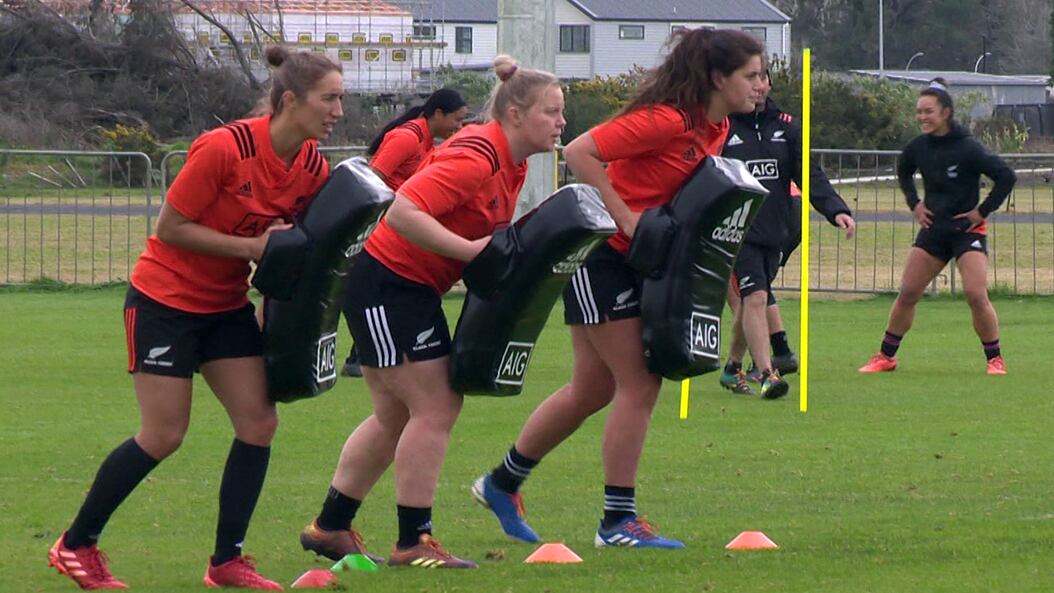The Black Ferns' playing future in 2020 may be up in the air but that hasn't stopped the world champions from setting their sights on next year's World Cup in Aotearoa.
This week the squad, including some Sevens stars, is in camp in Auckland. Black Fern Renee Wickliffe, of Hauraki, says the camps give them an advantage.
“Other countries are pretty much in lockdown, so it’s been good to connect up again despite everything that’s going on here. With the World Cup next year all these camps are really important to connect, to get our game plans going. Next year’s going to be an important year for us."
Stacey Waaka, of Ngāi Tūhoe, says there is a lot of uncertainty but focusing on fitness is a priority.
“It’s all about focusing on the now, that we’re in shape. Who knows what’s going to happen? Who knows if we are going to have any tests? But as long as we still have people coming in, we’re continuously ticking over and getting our bodies right physically and mentally, then I think the preparation leading into the world cup will be okay.”
Charmaine McMenamin, of Ngāti Porou, says New Zealand Rugby is trying to find different ways for the team to prepare for the world cup.
“We might have some inhouse competition trial matches like the All Blacks are doing with a North-South game. We may be doing the same thing but it's not confirmed.”
Waaka says it’s important for the players to keep challenging themselves.
“Hopefully we get to play against each other. We’re the best in the world at the moment so, if we can try to be better than one another every single day, then we’re going to be fine.”

Black Ferns training in Auckland this week / File
Goal to inspire younger players
With regional sport starting back around the country, the players are also taking on responsibility for inspiring younger Māori and Pasifika players.
McMenamin says it’s important for Black Fern players to go back to their own communities to engage.
“Sometimes we might have real busy schedules but, when I go home, I always try to link up with Poverty Bay Rugby and I go along to training at schools and just go help because now there’s that pathway within rugby. We need to reach out to our smaller communities where they might not get much help and go encourage them.”
McMenamin says it’s easy for young players to slip off the tracks.
“And that’s what I found when I went back. Some of the girls, big girls, you know they’re just sitting around and not really doing much. So I think for us, obviously as a team in a team environment like this, we need to go back and help and not just leave it to the organisations.”
Waaka says there has been an improvement among organisations in the support offered to Māori and Pacifika players but more can be done.
She says it's important to come together, work out a plan, get some sponsors, get some support from whānau, the wider community and help.
“There is just so much talent out there that is wasted sometimes and it's heartbreaking for us to see. Personally, for me growing up in a small rural community, it was a bit challenging but I had the right support. People just need to be more aware and open to ideas to be able to support them.”
Wickliffe says, “I have enjoyed being a part of this team and we do have the resources as a team and supporting and encouraging Māori players and Pacific Islanders to join the bus because it’s a really good kaupapa here and we’re really welcoming here.”
The World Cup is expected to take place between September 18 and October 16, 2021, in Auckland and Whangārei.
